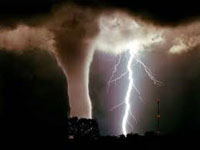I'm going to be on the other side of the fence here.
I love the changes to the rules. For the record, here's the rules so there's no confusion.
• A runner may not run out of a direct line to the plate in order to initiate contact with the catcher, or any player, covering the plate. If he does, the umpire can call him out even if the player taking the throw loses possession of the ball.
This is an obvious rule. This doesn't really change anything about the game, except removing the ability for a baserunner to go out of his way to maul a player. It rarely happened to begin with, so fans won't be missing anything here.
• The catcher may not block the pathway of a runner attempting to score unless he has possession of the ball. If the catcher blocks the runner before he has the ball, the umpire may call the runner safe.
This is also obvious. This is to prevent injury to the runner. I love this rule, since it means runs will score when they should. There were several instances last year where teams were screwed by the fact the catcher was allowed to crowd homeplate without the ball being in possesion of him.
• All calls will be based on the umpire's judgment. The umpire will consider such factors as whether the runner made an effort to touch the plate and whether he lowered his shoulder or used his hands, elbows or arms when approaching the catcher.
Nothing to see here. Just establishing that judgement calls will remain judgement calls, and thus, cannot be reversed by an instant replay. Thus, keeping the game's pacing at a similar level.
• Runners are not required to slide, and catchers in possession of the ball are allowed to block the plate. However, runners who do slide and catchers who provide the runner with a lane will never be found in violation of the rule.
THIS is the big one, and the one people have the most misconceptions about. This rule doesn't get rid of collisions at home plate. This rule only gets rid of EGREGIOUS collisions at home plate. You will still see runners barrel over catchers, and catchers blocking home plate. However, you will not be seeing someone go out of their way to clobber a catcher who is three feet off the plate, or a catcher breaking a baserunners leg by blocking the plate without the ball.
• The expanded instant replay rules, which also go into effect this season, will be available to review potential violations of Rule 7.13.
This just means that anything that isn't a judgement call can be reversed by Instant Replay.
-----
So for everyone panicking, calm down, this rule changes barely anything. Just makes the game safer.
I'm going to be on the other side of the fence here.
I love the changes to the rules. For the record, here's the rules so there's no confusion.
• A runner may not run out of a direct line to the plate in order to initiate contact with the catcher, or any player, covering the plate. If he does, the umpire can call him out even if the player taking the throw loses possession of the ball.
This is an obvious rule. This doesn't really change anything about the game, except removing the ability for a baserunner to go out of his way to maul a player. It rarely happened to begin with, so fans won't be missing anything here.
• The catcher may not block the pathway of a runner attempting to score unless he has possession of the ball. If the catcher blocks the runner before he has the ball, the umpire may call the runner safe.
This is also obvious. This is to prevent injury to the runner. I love this rule, since it means runs will score when they should. There were several instances last year where teams were screwed by the fact the catcher was allowed to crowd homeplate without the ball being in possesion of him.
• All calls will be based on the umpire's judgment. The umpire will consider such factors as whether the runner made an effort to touch the plate and whether he lowered his shoulder or used his hands, elbows or arms when approaching the catcher.
Nothing to see here. Just establishing that judgement calls will remain judgement calls, and thus, cannot be reversed by an instant replay. Thus, keeping the game's pacing at a similar level.
• Runners are not required to slide, and catchers in possession of the ball are allowed to block the plate. However, runners who do slide and catchers who provide the runner with a lane will never be found in violation of the rule.
THIS is the big one, and the one people have the most misconceptions about. This rule doesn't get rid of collisions at home plate. This rule only gets rid of EGREGIOUS collisions at home plate. You will still see runners barrel over catchers, and catchers blocking home plate. However, you will not be seeing someone go out of their way to clobber a catcher who is three feet off the plate, or a catcher breaking a baserunners leg by blocking the plate without the ball.
• The expanded instant replay rules, which also go into effect this season, will be available to review potential violations of Rule 7.13.
This just means that anything that isn't a judgement call can be reversed by Instant Replay.
-----
So for everyone panicking, calm down, this rule changes barely anything. Just makes the game safer. 



 zanderlex is Offline
| ID: 980622 | 111 Words
zanderlex is Offline
| ID: 980622 | 111 Words
 zanderlex is Offline
zanderlex is Offline
 tgags123 is Offline
| ID: 980630 | 93 Words
tgags123 is Offline
| ID: 980630 | 93 Words
 tgags123 is Offline
tgags123 is Offline
 Black Bot is Offline
| ID: 984233 | 54 Words
Black Bot is Offline
| ID: 984233 | 54 Words
 Black Bot is Offline
Black Bot is Offline
 legacyme3 is Offline
| ID: 984279 | 472 Words
legacyme3 is Offline
| ID: 984279 | 472 Words
 legacyme3 is Offline
legacyme3 is Offline
 Barathemos is Offline
| ID: 984333 | 48 Words
Barathemos is Offline
| ID: 984333 | 48 Words
 Barathemos is Offline
Barathemos is Offline


 User Notice
User Notice 






